Kultur got the opportunity to conduct a question and answer session with one of Southeast Asia’s Jamaican Sound role models. An architecture graduate, artist, songwriter, art teacher, and creative director. She, with her great power, always amplifies the beauty that she believes in. A passion that later made her known as the Southeast Asia’s Empress. The one and only, Masia One!
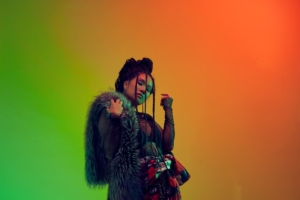
As a rapper who once worked with Pharrell Williams, what makes you turn yourself into Jamaican music?
Hiphop is my first love but I also came up in the Toronto (Canada) scene where it is very diverse and Hiphop, Reggae and Dancehall are very often played together. Many people don’t realize that Jamaican music and culture gave rise to rap music as we know it today. One of the founding fathers of Hiphop, Kool Herc is Jamaican descent and visited Jamrock to see artists “toasting” (rhyming to instrumentals) and he brought this idea back to America where he played only the “breaks”, or instrumental portion, of a record for rappers to rap and dancers to dance.
For me I had been working in the music industry in L.A. for 3 years and was very blessed to collaborate with some of my biggest musical heroes. I was writing lyrics for many other artists, and I wanted a break to focus on myself as an artist again. When I was small my brother played Peter Tosh, Black Uhuru and Toots and the Maytals records for me, so I knew Jamaica had a strong musical tradition and decided to check it out as a break from the music industry I ended up staying much longer than I had planned.
What do you see in Reggae and Hiphop, and what do you learn from them so far for your career in music?
My love for Hiphop is not just to become a rapper, but being allowed to express myself in a very bold and unapologetic way, speak the truth and be creative. When I began to explore Reggae music, it had all these same elements that I love; just like Hiphop, Reggae artists are unique and not afraid to speak their truth and express their style.
Rappers can be very egocentric when performing, wanting people to admire their lyrical skills. Something I learned from Reggae when watching the performances of Jamaican artists, the performer always shares the energy and vibe of the crowd, feeding off that momentum. In my time in Jamaica, I think my showmanship got better because I learned how to communicate and energize my audience, rather than only try to make it about myself and my skills.
As a country with a fairly small population, how has Jamaican music developed in Singapore? And what genres of Jamaican music thrive there?
In Singapore I think with the younger generation, Dancehall is possibly the most popular style especially for the dance scene and because of it’s fusion in today’s popular music with acts like Major Lazer, MIA, or singers like Justin Bieber and Ellie Golding with hit songs over dancehall rhythms. There is also a loyal underground following for Roots Reggae, Ska & Trojan Sound, as well as Dub with a few sound systems and music collectives. The nice thing about Singapore is that it is an international hub where many artists commonly pass through – we’ve had Caribbean artists like Shaggy, The Wailers, Jimmy Cliff, Estelle and even Rihanna perform at large scale events.
People don’t know that Singapore and Jamaica have many similarities. Sir Stamford Raffles, credited as a “founding father” of Singapore was actually born in Jamaica. Both nations were under British rule, and gained their independence within 3 years of one another, Jamaican in 1962 and Singapore 1965. In fact Lee Kuan Yew visited Jamaica to learn from this small island in the Caribbean, and he is in fact admired by many Jamaican politicians. Many people will only see how different Singapore and Jamaica are, and how far away they are from one another. The reason I share is so we can celebrate our similarities and shared histories and realize around the world we are not so different from one another.
Can you name some producers, musicians or bands from Singapore who are consistent in running the Jamaican music scene there?
We used to be more active as Singapura Dubclub throwing events however since the pandemic we have slowed down live Dubclubs and focused more on our online following. Of course I must mention the pioneer band of Singapore Reggae “The Bushmen” and the notorious Sunday Reggae nights at Hardrock Singapore. There are collectives like Soul Vibes Asia, Singapore Soul, Dub Skankin’ Hifi, Lion Steppaz Sound, Afrodisia.sg and DJs like ALX, Tom Shellsuit, DJ JnR, DJ Justo, Jean Reiki, Eden YC, Durio (Attagirl), Darren Dubwise, Submerge, DJ Ken, Ras Irie, Sham Em, Yooh the Vibration that keep the Reggae vibes alive in the Lion City. Also the dance scene is strong with dancers like Ragga Waka performing and teaching Dancehall almost every day of the week.
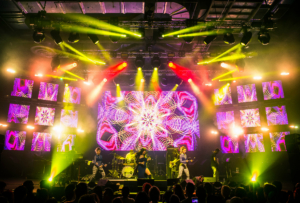
You have appeared several times at major festivals in many countries such as India, Japan, Thailand, Malaysia and others. What festival was the most memorable for Masia One? Why?
Burning Man was memorable because it taught me that anything that can be imagined can be built. During this festival I saw 3 storey high giant snail octopus or Lion head sound systems designed to move through the desert. Even though the music was predominantly EDM, I would rap or “singjay” over Dubstep or electronic music and people love it – this crowd was very open minded and welcoming of new styles and fusions.
I also really love Goa Sunsplash because it was a very well organized Reggae Music Festival, well respected acts from Jamaica, Europe and around Asia, a beautiful outdoor venue, with the craziest sound system built care of 10,000 Lion Sound System.
There are quite a few raggamuffins act in Southeast Asia. You are also known to be fluent in the Jamaican patois. Have you ever thought about taking this golden opportunity for another chapter of your career?
(Hahaha, I’m not sure I understand your question but I’ll try my best)
Returning to SE Asia has allowed me to reconnect with my roots. I have been amazed how big Dub music is in Vietnam, or Roots Reggae in Malaysia & Thailand and Ska or Rocksteady in Indonesia. It makes sense because SE Asia is a region of islands, and Raggamuffin music is island music. My favourite place to play Reggae music is in Indonesia and I hope I can tour more of the islands one day. My first show in Jakarta, a fan said to me “Masia One you are Indonesian” and I corrected him to say “No, I’m born in Singapore”, but he told me “No sister I can feel in your blood you are Indonesian.” Later on I spoke to my father and found out my great grandmother is from Bandung and I have many blood ties to Indonesia. This rooted connection I felt led me to start my label “Nusantara Records”, recognizing that we are all one blood and to celebrate the unique sounds of our APAC region.
We’d see you as one of a dancehall scenester. Do you see and use dancehall as a means to emancipate yourself? in terms of men’s domination both in this music and society?
That’s an interesting question. I think what I love about dancehall is that in Jamaica, the biggest and most exciting dancehall parties would happen right on the concrete street side. In the daytime maybe it’s a parking lot, but at nighttime they bring in the sound system, lighting and people gather to show off their fashion and new dance moves – suddenly the parking lot is transformed into the greatest party venue in the world. This taught me that it’s possible to create something from nothing with the right people and attitude.
Like all people I have different moods, so when I’m in a dancehall mood I love that I can be fully expressive, sexy, stylish, creative and bold. This is the essence of dancehall music – it’s all about attitude and unique style.
There’s a contention about how dancehall culture and music promote masculinity and hegemonic scripts predicated on stereotypes of Black women’s sexuality. But in your song like ‘Jamaican Flava’ you do the opposite. Just like Lady Shaw and Tanya Stephen who show that women can also freely express themselves as men do. Not that frankly and straight but it seems like you are able and free to articulate the desire of an Asian woman over black men? What do you say about this?
There is definitely a LOT of misogyny and negative lyrics in dancehall that has contributed to the rise of unhealthy behaviours like sexism, sexual abuse, and condoning violence. This is also true in Hip Hop music, where it can be very materialistic or it can express positivity and unity. I have a unique position as an artist that has been working in these male dominated genres for over 10 years, so I am always interested to step into the arena and break the stereotypes. I have definitely faced a lot of prejudice and racism throughout my career, but I have also met many fans that thank me for allowing a female and asian face to step up to the mic and show these boys what a woman can do, or express lyrics from a female point of view that is often not heard. I think given this unique opportunity, I am able to share a message in an unexpected way and will hopefully help to push more unity and positive connections through the music. For example in 2020 I released a song “Not All That Glitters is Gold” which is a Reggae song that addresses sexual abuse in the music industry. Because my following is mostly male, I was able to reach out to an audience that may not hear this message in Reggae music very often, and help them consider these messages from a female Reggae voice.
My approach is to always respect the culture, by learning more about the founders and heritage, but in the end for my own music I look less at the categories like Hiphop, Dancehall, Reggae etc. but instead how I want to make people feel or the message I want to bring no matter what the style is. For me I just want to make music that makes people feel brave…freedom music. So this can be Reggae, Hiphop or Dancehall.
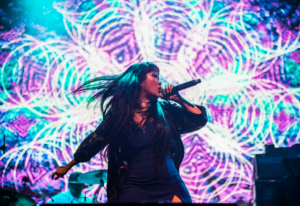
Still dealing with the previous question. Do you see Jamaican men as “exotic?” [Just like the music, dance, food, and culture, all that Jamaican flavor]. Is the desire over Jamaican men a desire over authenticity that you feel can help you to have a connection with and experience the “flavor” of Jamaica?
I grew up in Canada (Toronto has a very large West Indian population), worked in New York and LA and finally lived in Jamaica for 5 years. I do not view Jamaican men as “exotic” but I have definitely experienced the opposite working in the American and Jamaican music industry where Asian women are viewed as exotic. I think it is dangerous to view anything as exotic and stop there, because then you begin to commodify only things on the surface like appearances and stereotypes.
I think my deeper connection for Jamaican flavours would be in my experience teaching kids in Kingston and understanding that while they grew up in hard conditions of poverty and violence, their talent and confidence would help them change their situation. My authentic experiences in Jamaica, from the many kind people that took care of me, going to all the festivals and street parties, to experiencing the beauty and natural side of this island helped me to connect with something much deeper than man or woman. Jah Guide!
India and Japan are examples of 2 countries in Asia that have succeeded to promote their Jamaican music scene. Do you have any thoughts about the Southeast Asia scene? Things we should do or don’t from the eyes of Masia One maybe?
Authenticity: I think it is easy to fall in love with a culture for the fashion or the fun, but I would encourage the leaders of the scenes to dig deeper into the reason WHY the music was created. For example Reggae is the ’sufferers’ sound, with some of the greatest lyrics written out of the injustice and hardship faced by people. Ska started as the influence of American Rhythm and Blues music hit Jamaica – however because American music was more of an ‘uptown’ affair for richer Jamaicans, downtown would begin to create their own unique adaptation with faster beat, specialized dances and infused with the ‘downtown’ soul. Once we respect the pioneers and learn the histories of the music, in SE Asia we can draw our own parallels, and relate to the scene in a much deeper way, and bring our own unique SE Asian sounds, cultures and lyrics to the genre. I believe this is what creates longer lasting movements rather than trends that just seek to imitate.
Platforms: I love what Kultur Media is sharing, because I believe we have so many talented artists in SE Asia, but not enough platforms celebrating this unique sound. Often the mainstream broadcast is given to American or major label music, and the public doesn’t’ have an opportunity to learn about their own regional talent. So my suggestion is to work together build up more platforms and communities to celebrate the musical cultures we love, even if the mainstream is not offering that support. At the moment I am developing my own Jamaican Jerk Sauce company, Suka Suka Sauce, to become a platform for more SE Asian Reggae musicians to share their music.
Changing the Negative Stereotype: I was surprised that there were stereotypes attached to Reggae music in SE Asia such as the negative associations of the music with drugs, less affluent people, and sometimes racism toward another skin colour. I think it is important for Reggae artists and leaders to be aware of these poor perceptions and begin being positive examples for the community to change their mind. For example, when someone told me “Reggae is only poor people music”, I started to book Singapura Dubclubs in quality venues like Potato Head, Ce La Vi at MBS and Tajong Beach Club so they could open up their minds to see that Reggae is for everyone.
You have been to Jamaica, what valuable lessons did you learn when visiting Jamaica? Is there something that can fit to force the growth of the Jamaican music scene in Southeast asia?
One day I saw this Rasta man on the road in Belmont Jamaica and he was wearing a cooking pot on his head and singing very loud. I asked him “Rasta! Why are you wearing a cooking pot on your head? And why do you sing so loud but off key”. He replied “You see this cooking pot on my head? This is MY STYLE! And my voice may not be pretty, but it’s MY VOICE, no one sounds like me.”
I think something in SE Asia we want to follow trends, or imitate what we have seen but I think this rasta man brings an important lesson for creatives here to be true to themselves, their voice, their heritage and their message – and be proud of that special perspective and voice.
Also the national motto of Jamaica is “Out of Many One People” and I think this statement describes SE Asia as well, after all we were once all under the same rule. Keeping this in mind, I think that although Regage, Dub or Dancehall may not be the mainstream cultures in this region, if we work together between Singapore, Malaysia, Indonesia, Philippines, Thailand, Cambodia, Vietnam, Laos, Taiwan and as far as Australia – we can see a powerful growth of Reggae scene and the development of a truly SE Asian style of this music.
If Jamaica has the Kingston Dub Club, Singapore also has the Singapore Dub Club (SDC). What was your thought or the dreams behind the birth of the Singapore Dub Club?
I used to attend the Kingston Dub Club high in the hills of St Andrew’s parish in Jamaica. What was interesting to me was that beyond Jamaicans, people from Europe, Asia and America all congregated here to share their love for the dub. Understanding that Singapore is also seen as an international hub, I imagined the same thing with the goal to create a place where all of SE Asia’s Reggae talent and sound system lovers from around the world could all meet at the Singapura Dubclub to connect, dance, vibe and just share this common love for the culture. I also saw this as an opportunity to help add to booking routes for SE Asian Reggae artists and bands, that now they could add Singapore as a stop on their tours.

Through SDC, you have held lots of lovely events, such as the Bintan Dub Club and Gili Dub Club where you brought Addis Pablo (son of Augustus Pablo) and Donisha Prendergast for the line up. You seem to have lots of Jamaican Connection, what do you say about this? How important is networking from your point of view?
I have been very blessed in my life to be able to live in Jamaica and North America and develop these connections to bring them back to SE Asia, but beyond the networking – I felt it was crucial for SE Asians to witness Reggae music from the authentic source. Individuals like Addis Pablo, Donisha Pendergast, Skunga Kong, Xana Romeo represent the new generation from a great legacy of Jamaican music & culture. It is amazing to share with these artists to learn from their first hand experiences. Beyond this, they are young creatives so we are able to work with them as progressive contemporaries wanting to see the works of their parents and grand parents continue internationally.
After Sister Nancy, Johnny Osbourne, U-Brown and General Levy, Do you have other big names you’d like to bring with SDC later when all of us here could make a gig?
I want to bring a Reggae Revival line up including Kabaka Pyramid, Protoje, Koffee, Chronixx, Lila Ike, Naomi Cowan, Shensea, Teflon Zinc Fence, Skip Marley, Jah 9, Sevana and The Royal Blu because I feel the flame they sparked in Jamaican for the heritage of their own roots music, can be echoed here in SE Asia when the people see young creatives sharing their unique brand of talent. I also would love to bring artists like Tanya Stephens, Marcia Griffiths, Etana, Queen Ifrica and Tessanne Chin because I noticed many SE Asian Reggae festivals are dominated by male talent with very few female artists. I hope seeing these Empresses on stage might inspire more women to sing in this style.
You are also one of the founders from Nusantara records, can you tell us the initial idea of forming this imprint? Will it always release Jamaican sound related only? or?
The manifesto of Nusantara Records is to champion unique sound from SE Asian region and bring it to the world. This is not necessarily only Jamaican sound, but rather artists that showcase their unique SE Asian heritage in their music, but created for the updated sounds of today. During this pandemic, I have pivoted the company away from the traditional record label to a greater focus on ’sync and licensing opportunities’ for SE Asian artist’s music to appear in Netflix, TV, movies, commercials and video games. Touring and gigging is very hard in these times, so we wanted to move with the times and think of how we could help more artists, and one way was to create opportunity and financial grain through song placements. I have successfully gotten my music into Netflix shows like Altered Carbon, Wu Assassins, Snowpiecer and even had my song “Warriors Tongue” remixed as the trailer song for Fast and Furious 8. Now we are developing a platform so that we can open up these opportunities beyond myself, to more artists from this region.
We are currently open to accepting music from SE Asian artists for our catalogue. Please contact us via DM @nusantararecords
Outside of your musical related activity, you have also built another business in the form of a Jamaican sauce product, Suka Suka Sauce. Do you think this Jamaican sauce will suit to Asian tongues? Are there other types of products that are also unique from Jamaica, which might open up business opportunities in Asia?
Suka Suka Sauce is so sedap! We took years to develop this formula not only because I wanted it to be authentically delicious, but also we wanted to create a marinade that is all natural with no preservatives. I definitely think it suits the SE Asian palette and I often describe Jamaican Jerk Chicken as tasting like “Ayam Bakar Reggae”.
People in SE Asia love food. So what better way to discover new music and artists then through a sauce? We are currently developing Suka Suka Sauce to contain music of different artists we want to share across the region, so when you cook with Suka Suka Sauce, you have to play their music or the food will not turn out right! lol.
As a Southeast Asian role model, as one of its stars in the Jamaican music scene, do you have any personal idea about bringing Asian culture to the dynamic of this scene? Maybe musical infusion, dance or else?
The funny thing is Asian influence has always been a part of Reggae music, consider the heritage of Chinese Jamaicans that have been part of the music since the beginning from Leslie Kong (early producer of Bob Marley, Jimmy Cliff), Randy and Pat Chin (VP Records), Mikey & Geoffrey Chung, Byron and Neville Lee, Justin “Phillip” Yap, Herman Chin Loy…and even more recent artists like Tami and Tessanne Chin. With that in mind, I don’t think it’s only about bringing the dynamics of Asian culture into this scene (because I believe this will happen naturally since we ARE Asian, sing in Asian languages or regionally relevant topics), but I would be curious to see how we begin to identify the common elements of our culture, our struggle and our message with that of Jamaicans. I think digging deeper into that root of these commonalities between our regions is what will grow a more meaningful and sustainable community. I am reminded of the simple motto of “One Love”
Do you have some names from south east asian music units or soloists you’d like to recommend? Is there any possibility that we will hear your collaboration with one of them soon?
Srirajah Rockers (Dub, Thailand)
Windy City (Reggae, Korea)
Awich (Dancehall, Japan)
Delhi Sultinate (Dub-Reggae, India)
King I (Soundsystem, Malaysia)
Edy J (Lead singer of Gerhana Skacinta, Malaysia)
Matzka (Reggae, Taiwan)
Kuno Kini (heritage, Indonesia)
Toke Music (Reggae, Pop, Indonesia-German)
Johny Comes Lately (Ska-Punk, Malaysia)
Lord Dillinger (Rocksteady, Malaysia)
Astro Melody (Reggae-Soundsystem, Australia)
Jahwise Productions (Roots Reggae, Australia)
I have already collaborated with quite a few artists on this list! I have a great passion for SE Asian Reggae and would be excited to continue creating more music together with talents from this part of the world. I hope to do collaborations with artists like Conrad Good Vibration, Denny Frust and Yella Sky Sound System in the coming year and hopefully more music together with female Reggae artists from SEA.
You have toured or performed in Indonesia several times. What is interesting about the Jamaican music scene in Indonesia? Do you have something you’d like to say to your Indonesian friends?
I have many positive things to say about the Jamaican music scene in Indonesia. Many Jamaican artists are amazed when I show them how many people celebrate Reggae and Ska, when nowadays in Jamaica there are hardly any Ska bands and a lot of that music is seen as old or heritage music. They are shocked when they see parts of their culture that are no longer celebrated in their homeland, adopted by islands across the world. I also think there is so much musical talent in Indonesia that naturally understands the soul of the Rub-a-Dub. I remember when I played Denny Frust singing “Police and Thieves” for Ken Boothe, and he made me reply it 3 times because he couldn’t believe this skinny Indonesian guy could sing the music with the same style of soulfulness.
Above everything I think what is most powerful in Indonesian Jamaican music scene is the power of the community. When people decide to work together in Indonesia, so many great things happen from Mod’s Mayday, Festivals, Fund Raisers to even the support I got for the private festivals I threw for Bintan and Gili Dubclub.
For my Indonesian friends, I want to thank every single person I’ve ever met on tour or at shows from the bottom of my heart for always making me feel welcome, accepted and celebrated as an artist. Anytime I perform in Indonesia, I can feel the energy of the people and it makes me remember why I love this music culture so much. Each time I’ve performed in Indonesia I’ve been a guest artist on someone else’s show, so it is my dream to one day tour Indonesia with my own headlining shows, retracing the cities and places of my family heritage.
(Keyko,Sam & Yedi)
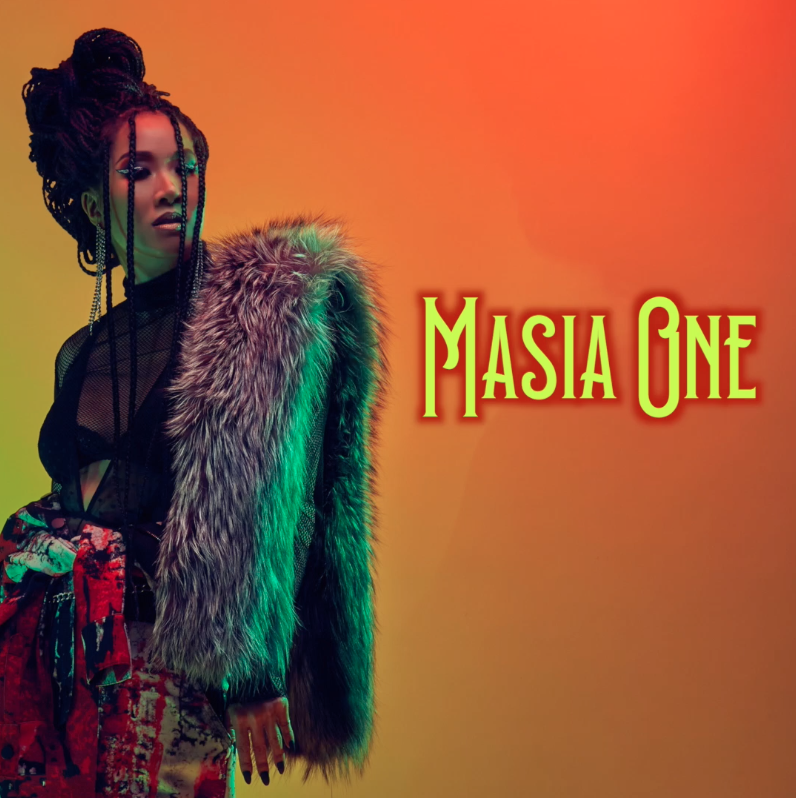


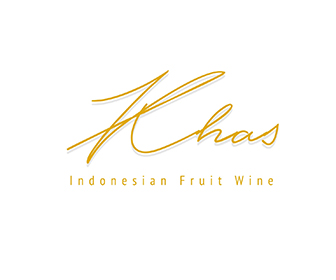

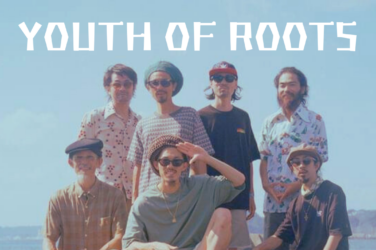
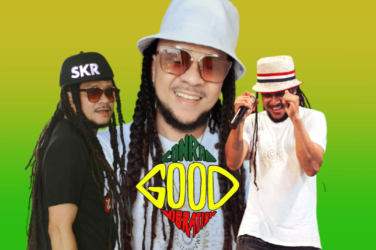
Show Comments (0)